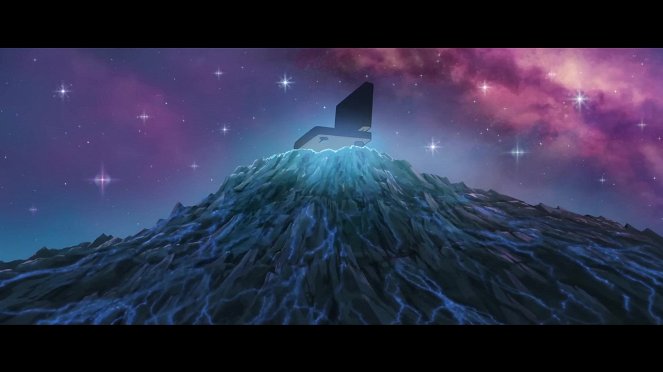Realização:
Makoto ShinkaiArgumento:
Makoto ShinkaiCâmara:
Ryôsuke TsudaElenco:
Hokuto Matsumura, 原菜乃華, Eri Fukatsu, Hakuô Matsumoto II, Shōta Sometani, Sairi Itoh, 花瀬琴音, Kana Hanazawa, Ryūnosuke Kamiki, Aimi, Takara Hachiya, Ann Yamane (mais)Streaming (1)
Conteúdos(1)
A coming-of-age story for the 17-year-old protagonist, Suzume, set in various disaster-stricken locations across Japan, where she must close the doors causing devastation. Suzume’s journey begins in a quiet town in Kyushu (located in southwestern Japan) when she encounters a young man who tells her, “I’m looking for a door.” What Suzume finds is a single weathered door standing upright in the midst of ruins as though it was shielded from whatever catastrophe struck. Seemingly drawn by its power, Suzume reaches for the knob… Doors begin to open one after another all across Japan, unleashing destruction upon any who are near. Suzume must close these portals to prevent further disaster. The stars, then sunset, and the morning sky. Within that realm, it was as though all time had melted together in the sky… (Sony Pictures)
(mais)Críticas (4)
An anime road movie about a journey through Japan from the south to the north and about meeting people and the adolescent self-discovery of a girl who doesn't quite know what to do with herself, her emotions and her loved ones. And by the way, in the second mythological plane, it's about fighting earthquake-causing giant tentacles, and that is the biggest problem with the film. On one level, it is melancholically intimate and relies on characters and emotions. On on the other, it's overwrought, especially during the monumental finale, which, however, doesn't clash with the rest of the film in style and delivery at all. And so, rather than the fight over the fiery plains, the most impressive thing in the finale is the emotional “passing of the wooden chair”.
()
I'll be brief, as much has already been said. At first, I couldn't take my eyes off the screen; seeing the work of Makoto Shinkai on the big screen was amazing. All those details, panoramas, and colors stood out beautifully. The music was also fantastic, whether it was the great central theme or the accompanying tracks. I enjoyed even the songs that Serizawa played in the car. The humor also worked for me; the characters seemed interesting and likable enough. The story might not be the strongest one that Makoto Shinkai has produced. I had more intense experiences with Your Name, but Suzume is still one of his best films. Although I found the ending a bit awkward, it was still relatively satisfying. However, what I enjoyed the most were the journeys across Japan and all those exciting but abandoned places. Unlike Suzume, I wanted to adopt that "restless white cat"... 8.5/10.
()
A riveting spectacle. Action-packed, but also sensitive, unexpectedly impressive and moving in the end. And always entertaining. The kind of film that almost makes you forget it's "just" animation.
()
Um road-movie de fantasia visualmente impressionante e ligeiramente romântico através do campo e das cidades japoneses, no qual um plano mitológico cheio de ideias mágicas e inspirado em desastres naturais japoneses reais se encontra com uma história civil e cheia de emoções sobre o amadurecimento, o amor platónico devotado, o sentimento de culpa e a paternidade. Makoto Shinkai continua a manter as suas marcas registadas sem provocar a impressão de repetição. Os personagens bem escritos, também vários pormenores adoráveis e o humor suave proporcionam uma profundidade quase surpreendente à narrativa de fantasia. Não faltam demónios que despertam pensamentos reprimidos, gatos maliciosos que adoram a destruição, o mais engraçado descapotável com o telhado partido e também a melhor cadeira de três pernas da história do cinema.
()

